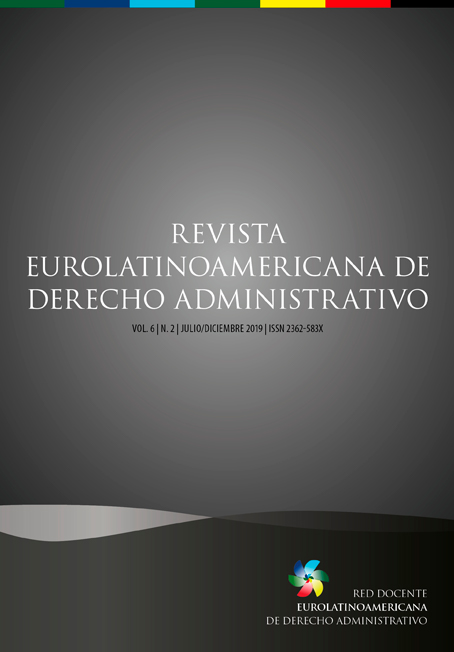Políticas públicas para a promoção do trabalho decente no Brasil: diálogos com Amartya Sen
DOI:
https://doi.org/10.14409/redoeda.v6i2.9109Keywords:
Amartya Sen, decent work, public policies, development, labor reformAbstract
The United Nations' eighth sustainable development objective foresees the need to "promote sustained, inclusive and sustainable economic growth, full and productive employment and decent work for all". This goal is consistent with the guidelines of the International Labor Organization's policies and programs to ensure the exercise of employment in conditions that respect human rights, individual freedoms and equality. Given this context, and reinforced by explicit provisions in the Constitution of the Federative Republic of 1988 that guide in the same direction, Brazil has developed public policies and important legislative changes related to the world of work. Over the last twenty years, more than fifty-five thousand Brazilian workers have been rescued from conditions analogous to slavery, according to data from the Secretariat of Labour Inspection. According to data from the Ministry of Labor, although expressly prohibited by law, child labor still affects 2.7 million Brazilian children. The country is the fourth in the world with the highest incidence of occupational accidents, according to data from the Ministry of Labor. The purpose of this article is to analyze the extent to which state performance has contributed to the effectiveness of decent work, as well as how the impacts brought about by the labor reform approved in the Brazilian National Congress in 2017 may interfere in the promotion of the exercise of work activity so that does not violate fundamental rights and guarantees to life, equality, security and freedom. The overcoming of problems related to decent work is central to the analysis of development, which, according to Amartya Sen, consists in removing limitations to the choices and opportunities for rational citizen action. In this way, the present article analyzes the effects of the public policies of valorization of decent work in the expansion of the freedom of the individuals, considered, simultaneously, like end of the development and like its main means. Some freedoms, including decent work, play an instrumental role in promoting the freedoms of other species and stimulate targeted initiatives to overcome deprivation. Therefore, analyzing the extent to which the Brazilian State has achieved success in promoting decent work becomes an extremely important task.
References
DIEESE – DEPARTAMENTO INTERSINDICAL DE ESTATÍSTICA E ESTUDOS SOCIOECONÔMICOS. Terceirização e precarização das condições de trabalho: condições de trabalho e remuneração em atividades tipicamente terceirizadas e contratantes. São Paulo: Dieese, 2017.
FILGUEIRAS, V. Terceirização e trabalho análogo ao escravo: coincidência? São Paulo: Unicamp, 2014.
JESUS, Damásio E. de. Código Penal Anotado. 12. ed. São Paulo: Saraiva, 2002.
OLIVEIRA, Sebastião Geraldo de. Indenizações por acidente do trabalho ou doença ocupacional. 5. ed. rev., ampl. e atual. São Paulo: LTr, 2009.
ORGANIZAÇÃO INTERNACIONAL DO TRABALHO [OIT]. O Brasil sem trabalho infantil! Quando? Projeção de estimativas de erradicação do trabalho infantil, com base em dados de 1992-2003. Brasilia, 2004. Available at: <https://www.ilo.org/wcmsp5/groups/public/---americas/---ro-lima/---ilo-brasilia/documents/publication/wcms_233593.pdf>.
RAMOS, Igor Luis Furtado. Trabalho Escravo: o caso José Pereira e sua relevância para a atual situação brasileira. Cosmopolitan Law Journal, v. 2, n. 2 – v. 4, n. 2, dez. 2014 – dez. 2016.
SEN, A. K. Development as Freedom. New York: Anchor Books, 1999.
SEN, A. K. Inequality Reexamined. New York: Oxford University Press, 1992.
SEN, A. K. The ideia of justice. Cambridge: The Belknap Press of Harvard University Press, 2009.
SIQUEIRA, Túlio Manoel Leles de. O Trabalho Escravo perdura no Brasil do século XXI. Rev. Trib. Reg. Trab. 3ª Reg., Belo Horizonte, v.52, n.82, p.127-147, jul./dez.2010.
SUSSEKIND, Arnaldo. Instituições de Direito do Trabalho. Vol. II. 22. ed. atual. por Arnaldo Sussekind e João de Lima Teixeira Filho. São Paulo: LTr, 2005.
VILANI, Jane Araújo dos Santos. A questão do trabalho infantil: mitos e verdades. In Revista Brasileira de Inclusão Social, Brasília, v. 2, n. 1, p. 83-92, out. 2006/mar. 2007.
Downloads
Published
How to Cite
Issue
Section
License
Authors who publish in this Journal agree to the following terms:
- Authors retain copyright and grant the Journal of Constitutional Research the right of first publication with the article simultaneously licensed under the Creative Commons - Attribution 4.0 International which allows sharing the work with recognition of the authors and its initial publication in this Journal.
- Authors are able to take on additional contracts separately, for non-exclusive distribution of the version of the paper published in this Journal (eg.: publishing in institutional repository or as a book), with a recognition of its initial publication in this Journal.
- Authors are allowed and encouraged to publish their work online (eg.: in institutional repositories or on their personal website) at any point before or during the submission process, as it can lead to productive exchanges, as well as increase the impact and the citation of the published work (see the Effect of Open Access).



























.png)





